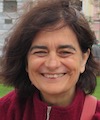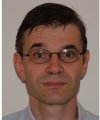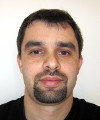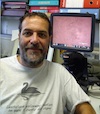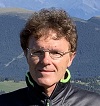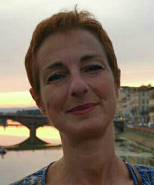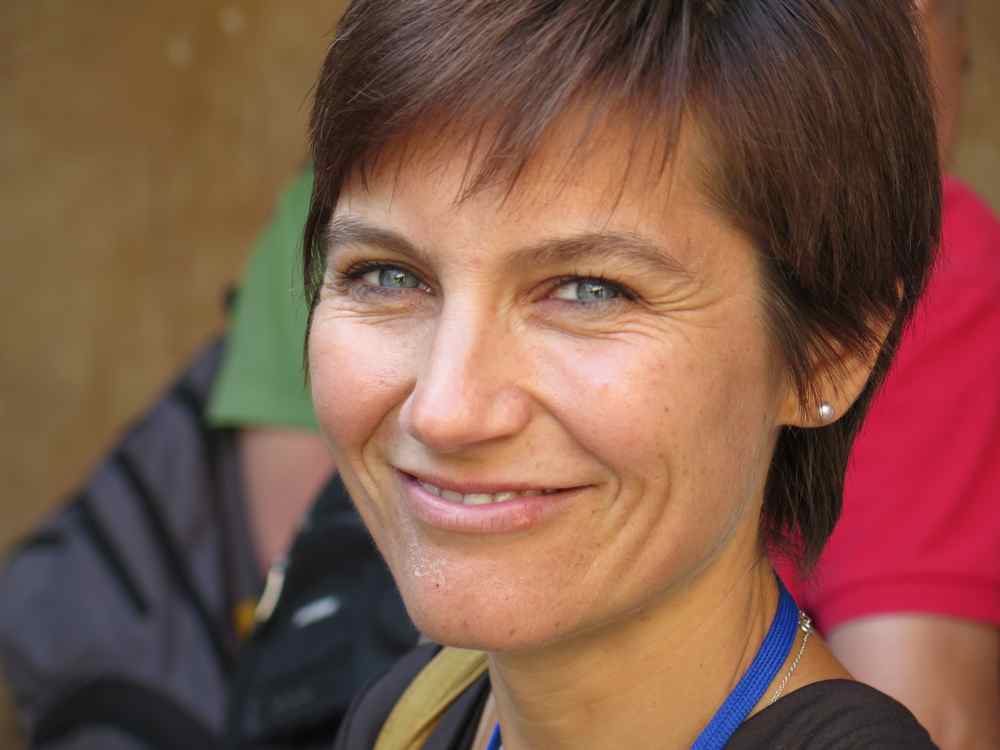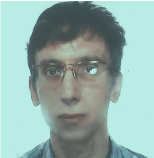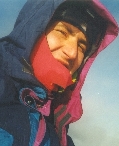Studying at the University of Verona
Here you can find information on the organisational aspects of the Programme, lecture timetables, learning activities and useful contact details for your time at the University, from enrolment to graduation.
Academic calendar
The academic calendar shows the deadlines and scheduled events that are relevant to students, teaching and technical-administrative staff of the University. Public holidays and University closures are also indicated. The academic year normally begins on 1 October each year and ends on 30 September of the following year.
Course calendar
The Academic Calendar sets out the degree programme lecture and exam timetables, as well as the relevant university closure dates..
| Period | From | To |
|---|---|---|
| I sem. | Oct 3, 2016 | Jan 31, 2017 |
| II sem. | Mar 1, 2017 | Jun 9, 2017 |
| Session | From | To |
|---|---|---|
| Sessione invernale Appelli d'esame | Feb 1, 2017 | Feb 28, 2017 |
| Sessione estiva Appelli d'esame | Jun 12, 2017 | Jul 31, 2017 |
| Sessione autunnale Appelli d'esame | Sep 1, 2017 | Sep 29, 2017 |
| Session | From | To |
|---|---|---|
| Sessione estiva Appelli di Laurea | Jul 20, 2017 | Jul 20, 2017 |
| Sessione autunnale Appelli di laurea | Nov 23, 2017 | Nov 23, 2017 |
| Sessione invernale Appelli di laurea | Mar 22, 2018 | Mar 22, 2018 |
| Period | From | To |
|---|---|---|
| Festa di Ognissanti | Nov 1, 2016 | Nov 1, 2016 |
| Festa dell'Immacolata Concezione | Dec 8, 2016 | Dec 8, 2016 |
| Vacanze di Natale | Dec 23, 2016 | Jan 8, 2017 |
| Vacanze di Pasqua | Apr 14, 2017 | Apr 18, 2017 |
| Anniversario della Liberazione | Apr 25, 2017 | Apr 25, 2017 |
| Festa del Lavoro | May 1, 2017 | May 1, 2017 |
| Festa della Repubblica | Jun 2, 2017 | Jun 2, 2017 |
| Vacanze estive | Aug 8, 2017 | Aug 20, 2017 |
Exam calendar
Exam dates and rounds are managed by the relevant Science and Engineering Teaching and Student Services Unit.
To view all the exam sessions available, please use the Exam dashboard on ESSE3.
If you forgot your login details or have problems logging in, please contact the relevant IT HelpDesk, or check the login details recovery web page.
Should you have any doubts or questions, please check the Enrollment FAQs
Academic staff
 elena.gaburro@univr.it
elena.gaburro@univr.it
 cecilia.mancini@univr.it
cecilia.mancini@univr.it
 alessia.mandini@univr.it
alessia.mandini@univr.it
Study Plan
The Study Plan includes all modules, teaching and learning activities that each student will need to undertake during their time at the University.
Please select your Study Plan based on your enrollment year.
1° Year
| Modules | Credits | TAF | SSD |
|---|
2° Year activated in the A.Y. 2017/2018
| Modules | Credits | TAF | SSD |
|---|
3° Year activated in the A.Y. 2018/2019
| Modules | Credits | TAF | SSD |
|---|
| Modules | Credits | TAF | SSD |
|---|
| Modules | Credits | TAF | SSD |
|---|
| Modules | Credits | TAF | SSD |
|---|
| Modules | Credits | TAF | SSD |
|---|
Legend | Type of training activity (TTA)
TAF (Type of Educational Activity) All courses and activities are classified into different types of educational activities, indicated by a letter.
Dynamical Systems (2017/2018)
Teaching code
4S00244
Credits
9
Language
Italian
Also offered in courses:
- Dynamical Systems of the course Bachelor's degree in Applied Mathematics
Scientific Disciplinary Sector (SSD)
MAT/05 - MATHEMATICAL ANALYSIS
The teaching is organized as follows:
I parte
Credits
6
Period
II sem.
Academic staff
Francesco Rossi
II parte
Credits
3
Period
II sem.
Academic staff
Francesco Rossi
Learning outcomes
The course introduces theoretical and practical aspects of Dynamical Systems, describing the evolution in time of quantitative variables. Even though classical examples come from physics, for dynamics of point particles, dynamical systems now model several different phenomena, such as population dynamic, models in computer science, road traffic…
The two main goals for this course are: first, the knowledge of basic results about Dynamical Systems (When is a system well-defined? When is it stable? How can one check its main properties?); second, the ability to study and build models based on dynamical systems (see examples in the syllabus).
After the course, the student will be able to define and study a given dynamical system (write the equations, study its trajectories and its stability); he will know both main theorems about Dynamical Systems and classical models.
Program
Part 1
1. Basic principles.
The Cauchy Problem. Completeness. Flows and orbits. Re-parametrization. Local rectifiability Theorem. First examples: exponential growth, the logistic equation, the Lotka–Volterra equation, the SIS and SIR models, car-following…
2. Models and examples
One-dimensional systems. Conservative systems with one degree of freedom. Linear systems: dimension 1, 2, n. Non-linear systems in R^2.
3. Discrete-time systems.
Definitions. Examples: bacterial growth, Fibonacci, structured populations, AIMD…
Linear systems and z-transform. Stability.
Part 2
4. Stability
Definition. Lyapunov theory. Alpha and Omega-limits. Poincaré-Bendixson Theorem.
Examination Methods
Part 1
A written exam (1h30) with 2 exercises: phase portrait in 2D for a non-linear dynamical system; computation of trajectories and stability for a discrete-time system.
The maximal grade for this exam is 30. The minimal grade for the oral exam is 18/30.
The written exam tests the following learning outcomes:
- To have adequate analytical skills;
- To have adequate computational skills;
- To be able to translate problems from natural language to mathematical formulations;
- To be able to define and develop mathematical models for physics and natural sciences.
An oral exam with 2-3 theoretical questions. The oral exam is compulsory; if it is not passed, the student is required to repeat the written exam too. If it is passed, the grade from the written exam is increased or decreased of 6 grades maximum.
The oral exam tests the following learning outcomes:
- To be able to present precise proofs and recognize them.
Part 2
A written exam (2h) with 3 exercises: phase portrait in 2D for a non-linear dynamical system; computation of trajectories and stability for a discrete-time system; stability analysis for a system
The oral exam and the learning outcomes are described in Part 1.
Type D and Type F activities
Modules not yet included
Career prospects
Module/Programme news
News for students
There you will find information, resources and services useful during your time at the University (Student’s exam record, your study plan on ESSE3, Distance Learning courses, university email account, office forms, administrative procedures, etc.). You can log into MyUnivr with your GIA login details: only in this way will you be able to receive notification of all the notices from your teachers and your secretariat via email and soon also via the Univr app.
Graduation
Documents
| Title | Info File |
|---|---|
|
|
pdf, it, 31 KB, 29/07/21 |
|
|
pdf, it, 31 KB, 29/07/21 |
|
|
pdf, it, 171 KB, 20/03/24 |
List of theses and work experience proposals
| theses proposals | Research area |
|---|---|
| Formule di rappresentazione per gradienti generalizzati | Mathematics - Analysis |
| Formule di rappresentazione per gradienti generalizzati | Mathematics - Mathematics |
| Proposte Tesi A. Gnoatto | Various topics |
| Mathematics Bachelor and Master thesis titles | Various topics |
| THESIS_1: Sensors and Actuators for Applications in Micro-Robotics and Robotic Surgery | Various topics |
| THESIS_2: Force Feedback and Haptics in the Da Vinci Robot: study, analysis, and future perspectives | Various topics |
| THESIS_3: Cable-Driven Systems in the Da Vinci Robotic Tools: study, analysis and optimization | Various topics |
| Stage | Research area |
|---|---|
| Internship proposals for students in mathematics | Various topics |
Attendance
As stated in the Teaching Regulations for the A.Y. 2022/2023, except for specific practical or lab activities, attendance is not mandatory. Regarding these activities, please see the web page of each module for information on the number of hours that must be attended on-site.
Career management
Student login and resources
Erasmus+ and other experiences abroad
Commissione tutor
La commissione ha il compito di guidare le studentesse e gli studenti durante l'intero percorso di studi, di orientarli nella scelta dei percorsi formativi, di renderli attivamente partecipi del processo formativo e di contribuire al superamento di eventuali difficoltà individuali.
E' composta dai proff. Sisto Baldo, Marco Caliari, Francesca Mantese, Giandomenico Orlandi e Nicola Sansonetto

 +39 045 802 7913
+39 045 802 7913
